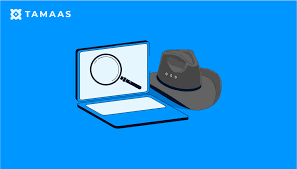egyptian arabic

Egyptian Arabic: The Language of Everyday Egypt
egyptian arabic , known locally as "Maṣri" (مَصرِي), is the most widely spoken dialect of Arabic in Egypt and one of the most influential dialects in the Arab world. As the everyday language of over 100 million Egyptians, it is a vibrant and dynamic form of Arabic that has evolved over centuries, blending elements from various languages and cultures.
Origins and Evolution
Egyptian Arabic developed from Classical Arabic, the language of the Quran, after the Arab conquest of Egypt in the 7th century. However, it was heavily influenced by the languages of previous civilizations, including Coptic, Greek, Turkish, French, and English. This rich linguistic history makes Egyptian Arabic unique among Arabic dialects.
- Coptic Influence: Many Egyptian Arabic words have Coptic origins, such as "dunya" (دنيا) meaning "world" and "shams" (شمس) meaning "sun".
- Turkish Influence: Due to Ottoman rule, words like "basha" (باشا) (a title of respect) and "kulfa" (كُلفة) (cost) entered the dialect.
- European Influence: Words like "kompyūtar" (كمبيوتر) (computer) from English and "sālōn" (صالون) (salon) from French reflect more recent linguistic borrowings.
Characteristics of Egyptian Arabic
1. Pronunciation Differences
Egyptian Arabic has distinct phonetic features that set it apart from Modern Standard Arabic (MSA):
- The letter ج (jīm) is pronounced as /g/ instead of /ʒ/, making "جمل" (camel) sound like "gamal" instead of "jamal".
- The ق (qāf) sound is often pronounced as a glottal stop (ʔ), so "قلب" (heart) becomes "ʔalb".
2. Grammar and Syntax
Egyptian Arabic simplifies many aspects of MSA grammar:
- The dual form (used for two of something) is rarely used in speech. Instead, the plural is often preferred.
- The present progressive tense is commonly used with "b-", so "I write" (aktub) becomes "baktib".
3. Everyday Expressions
Egyptian Arabic is rich in idiomatic expressions and slang that reflect the country’s humor and cultural identity:
- "Kullu tamām" (كله تمام) – "Everything is fine."
- "Mashy" (ماشي) – "Okay" or "Alright."
- "Maʿlesh" (معلش) – "Never mind" or "Sorry."
- "Bēyza" (بايظة) – "Broken" or "Not working."
Egyptian Arabic in Media and Culture
Egyptian Arabic has a dominant presence in Arab media, music, and cinema, making it one of the most widely understood dialects in the Arab world. Egyptian movies, soap operas, and songs by artists like Umm Kulthum, Abdel Halim Hafez, and Amr Diab have helped spread the dialect beyond Egypt’s borders.
Conclusion
Egyptian Arabic is more than just a dialect—it is a reflection of Egypt’s rich history, diverse influences, and lively culture. Its ease of communication and widespread use make it one of the most accessible and recognized forms of Arabic in the world. Whether spoken in the streets of Cairo or sung in Arabic music, Egyptian Arabic continues to be a vital part of Egypt’s national identity.
fore more: learn arabic
- Art
- Causes
- Crafts
- Dance
- Drinks
- Film
- Fitness
- Food
- Games
- Gardening
- Health
- Home
- Literature
- Music
- Networking
- Other
- Party
- Religion
- Shopping
- Sports
- Theater
- Wellness


